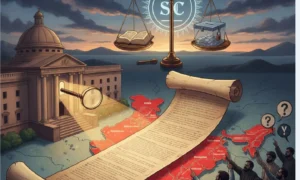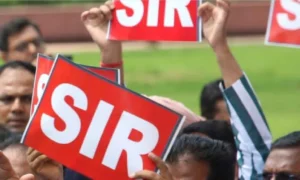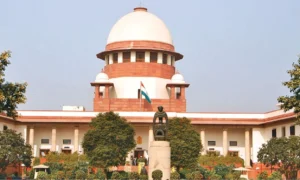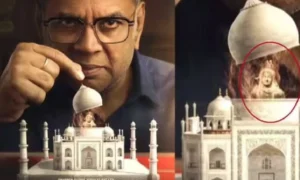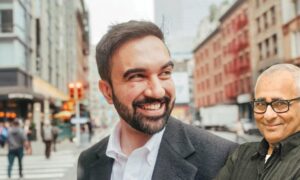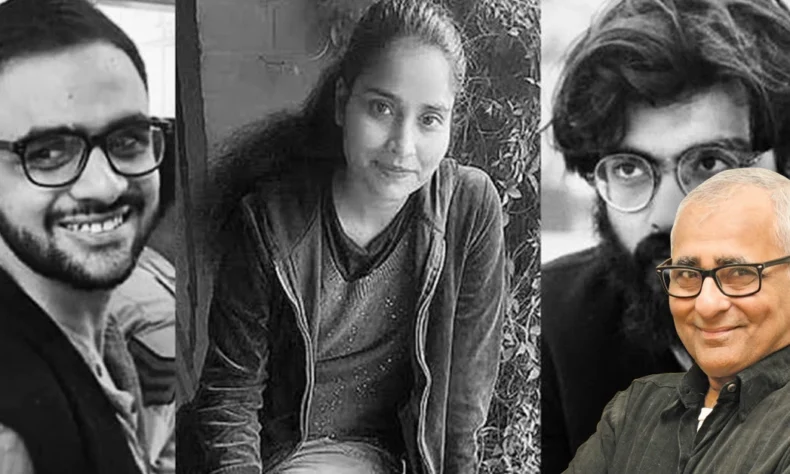
By Inderjit Badhwar
The phrase “justice delayed is justice denied” is not a cliché—it is a moral truth. This issue’s cover story by Binny Yadav is both a chronicle of legal inertia and an urgent call to reflect on how easily the promise of liberty can be eroded under the guise of national security.
More than five years have passed since Umar Khalid, Sharjeel Imam, Gulfisha Fatima and several others were arrested in connection with the Delhi riots of February 2020. And yet, their trial has not begun. What we have instead is an unending cycle of rejected bail applications, judicial deference to prosecution narratives and the slow normalisation of pre-trial punishment. This is not simply a story about individuals. It is about the health of our democracy and the role of the judiciary as guardian of constitutional freedoms.
At the heart of the story lies the Unlawful Activities (Prevention) Act (UAPA), a law whose sweeping definitions and extraordinary restrictions on bail invert the constitutional principle of “innocent until proven guilty”. Under Section 43D(5), the burden shifts dramatically: an accused must prove the accusation is not “prima facie true”. In practice, this means bail becomes virtually impossible and detention becomes indefinite. What might appear as legal technicality is, in reality, a profound disruption of liberty.
Yadav’s feature lays bare the consequences of this legal framework. Bail hearings under the UAPA resemble mini-trials by inference rather than protective processes designed to safeguard liberty. Worse, the courts’ reluctance to weigh the quality of evidence—WhatsApp chats, political speeches, or tenuous associations—has meant that dissent itself is increasingly criminalised.
The Supreme Court, in Union of India vs KA Najeeb (2021), had reaffirmed that the right to a speedy trial is a part of Article 21 of the Constitution and that prolonged pre-trial incarceration violates fundamental rights. Yet, in the recent Delhi High Court order, this precedent seems to have been overlooked. The accused remain behind bars not because they have been proven guilty, but because the judicial machinery is slow and the executive determined. This is, in effect, punishment without conviction.
For a democracy that prides itself on being governed by rule of law, this represents a dangerous drift. The judiciary is meant to serve as the ultimate check on arbitrary power, ensuring that laws—however stringent—are not misapplied to silence voices of dissent. When courts instead defer uncritically to executive claims of conspiracy and national security, the delicate balance between state authority and individual liberty tilts precariously.
This is why Yadav’s story matters. It does more than recount a legal battle. It interrogates the very meaning of justice in contemporary India. What happens when the guardians of freedom appear willing to trade liberty for expediency? What becomes of democratic space when dissenters are imprisoned without conviction, and their trials endlessly delayed? These are questions that reach far beyond the Delhi riots case. They speak to the lived experience of justice for every citizen.
There is also a deeper jurisprudential lesson here. Laws like the UAPA were never meant to be ordinary tools of governance; they were designed for extraordinary threats. To apply them against political activists, journalists, or students is to hollow out their legitimacy. Worse, it corrodes the trust between citizens and the justice system. Once the principle of fair trial is diluted, the damage is not easily undone.
It is telling that the High Court justified its refusal to grant bail by emphasising the prosecution’s narrative of a “well-orchestrated conspiracy”. This echoes a broader trend where courts, confronted with state claims of national security, hesitate to apply the same rigorous scrutiny they would in ordinary cases. But constitutional rights are not suspended when the state invokes security. If anything, the judiciary’s vigilance should be heightened.
A cover story such as this is also a reminder of the stakes of silence. Each rejected bail plea, each year of detention without trial, is not only a personal tragedy for the accused, but also a collective erosion of liberty for all. It signals to citizens that the line between dissent and “unlawful activity” is fragile, that the right to question authority may carry the cost of indefinite imprisonment.
Our magazine has long argued that democracy is measured not by the strength of its rhetoric, but by the resilience of its institutions. In this moment, the test is squarely before the judiciary. Will it reclaim its role as the bulwark of liberty, or will it continue to cede space to an increasingly muscular executive?
Yadav’s piece does not offer easy answers, because none exist. Instead, it insists on a reckoning. For the accused, for the courts, and for us as citizens. Justice cannot be an endlessly deferred promise. Nor can liberty be conditional on the convenience of the state.
In choosing to make this our cover story, we affirm that journalism must shine its sharpest light on the places where power seeks to obscure accountability. The UAPA case is not merely about bail. It is about whether India will remain faithful to the constitutional promise of justice, liberty, and dignity. And that is a question none of us can afford to ignore.
📰 Crime Today News is proudly sponsored by DRYFRUIT & CO – A Brand by eFabby Global LLC
Design & Developed by Yes Mom Hosting

